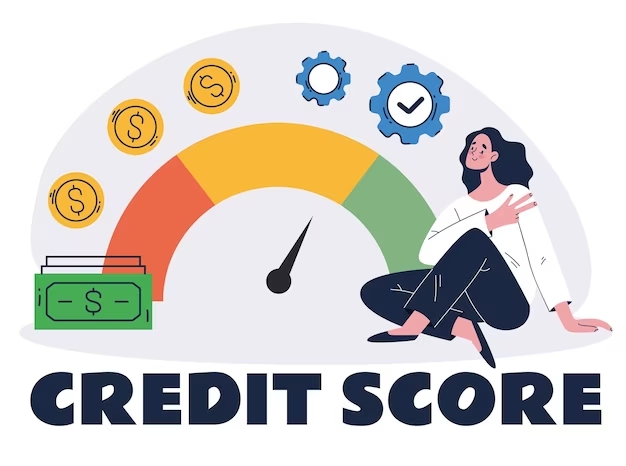Are you concerned about taking out student loans and how they might affect your credit score? Well, you’ll be glad to know that student loans can actually have a positive impact on your credit score if managed responsibly. This article will explore the various ways in which student loans can benefit your credit score and overall financial well-being.
Understanding credit scores and their importance
Before we delve into the impact of student loans on your credit score, let’s first understand what credit scores are and why they are important. Your credit score is a three-digit number that represents your creditworthiness and is used by lenders to assess your ability to repay debts. It is a crucial factor in determining whether you can secure loans, credit cards, or mortgages, and at what interest rates.
Credit scores range from 300 to 850, with a higher score indicating a lower credit risk. Factors that influence your credit score include payment history, credit utilization, length of credit history, types of credit used, and new credit applications.
What are student loans and how do they affect credit scores?
Student loans are financial aid provided to students to help cover the costs of higher education. They can be obtained from the government or private lenders, and repayment typically begins after graduation or when the borrower is no longer enrolled in school.
Student loans are considered installment loans, which means you borrow a fixed amount of money and repay it over a specific period in regular installments. These loans have a significant impact on your credit score, as they demonstrate your ability to manage debt responsibly.
Positive impacts of student loans on credit scores
Timely payment of student loans
One of the most crucial factors in maintaining a positive credit score is making payments on time. Timely payment of student loans is a strong indicator of responsible financial behavior and can significantly boost your creditworthiness. Each on-time payment shows lenders that you are reliable and capable of managing debt effectively.
Moreover, consistently making on-time payments demonstrates your commitment to fulfilling your financial obligations. This responsible behavior will reflect positively on your credit history, making you a more attractive borrower to lenders.
Building a credit history with student loans
Establishing a positive credit history is essential for future financial endeavors, such as buying a house or a car. Student loans provide an excellent opportunity to build a credit history, especially for individuals who have limited or no credit history.
By taking out student loans and making timely payments, you demonstrate to lenders that you can handle credit responsibly. This helps you build a strong credit foundation for future financial endeavors and increases your chances of securing favorable terms on future loans.
Impact of loan consolidation on credit scores
Loan consolidation is a process in which multiple student loans are combined into a single loan with a single monthly payment. Consolidating your student loans can have a positive impact on your credit score, provided that you continue to make timely payments.
When you consolidate your loans, it reduces the number of accounts you have open, which can positively affect your credit score. Additionally, if you were struggling to make payments on multiple loans, consolidating them into a single loan with a lower interest rate can make repayment more manageable and increase your chances of making timely payments.
Potential negative impacts of student loans on credit scores
While student loans can have many positive impacts on your credit score, it is essential to be aware of potential negative impacts as well. Failing to make timely payments or defaulting on your student loans can have severe consequences for your credit score.
Late payments or defaulting on your loans will be reported to credit bureaus and will have a negative impact on your credit score. This can make it challenging to secure future loans or credit cards, and may result in higher interest rates if you are approved for credit.
It is crucial to communicate with your lender if you are facing financial difficulties and explore options such as deferment or income-driven repayment plans. By proactively addressing your financial situation, you can minimize the negative impact on your credit score.
Tips for managing student loans and maintaining a positive credit score
While student loans can have a positive impact on your credit score, it is essential to manage them responsibly. Here are some tips to help you maintain a positive credit score while repaying your student loans:
- Create a budget: Develop a budget that includes your student loan payments. This will help you prioritize your payments and ensure that you have enough funds to cover them each month.
- Set up automatic payments: Consider setting up automatic payments for your student loans. This will help you avoid missing payments and ensure that they are always made on time.
- Explore repayment options: If you are struggling to make your student loan payments, explore options such as deferment, forbearance, or income-driven repayment plans. These options can provide temporary relief while you work on improving your financial situation.
- Monitor your credit score: Regularly monitor your credit score to keep track of any changes or discrepancies. This will help you identify and address any issues that may arise.
- Avoid taking on additional debt: While repaying your student loans, it is advisable to avoid taking on additional debt, such as credit card debt or personal loans. This will help you maintain a healthy debt-to-income ratio and minimize the risk of financial strain.
How to monitor and improve your credit score while repaying student loans
Monitoring and improving your credit score while repaying student loans is essential for your financial well-being. Here are some steps you can take to monitor and improve your credit score:
- Obtain a free credit report: Request a free copy of your credit report from each of the three major credit bureaus – Experian, Equifax, and TransUnion. Review the reports for accuracy and report any errors or discrepancies.
- Pay attention to credit utilization: Keep your credit card balances low and avoid maxing out your credit limits. Aim to keep your credit utilization below 30% to maintain a healthy credit score.
- Limit credit applications: Avoid applying for multiple lines of credit within a short period. Each credit application can result in a hard inquiry on your credit report, which can temporarily lower your credit score.
- Diversify your credit mix: In addition to student loans, consider obtaining other types of credit, such as credit cards or a small personal loan. This will help diversify your credit mix and demonstrate your ability to handle different types of credit responsibly.
- Pay off high-interest debt: If you have high-interest debt, such as credit card debt, focus on paying it off as quickly as possible. This will help improve your credit utilization and overall credit score.
Conclusion: Leveraging student loans to build a strong credit foundation
Contrary to popular belief, student loans can indeed impact your credit score positively if managed responsibly. By making timely payments, building a credit history, and exploring loan consolidation options, you can leverage student loans to build a strong credit foundation for your future financial endeavors.
Remember to manage your student loans wisely, create a budget, and prioritize your payments. Regularly monitor your credit score and take steps to improve it while repaying your student loans. By doing so, you will not only establish a positive credit history but also enhance your financial well-being in the long run.
So, embrace your student loans as an opportunity to demonstrate your financial responsibility and take control of your credit score. With careful management and responsible repayment, you can use student loans as a stepping stone towards a brighter financial future.


